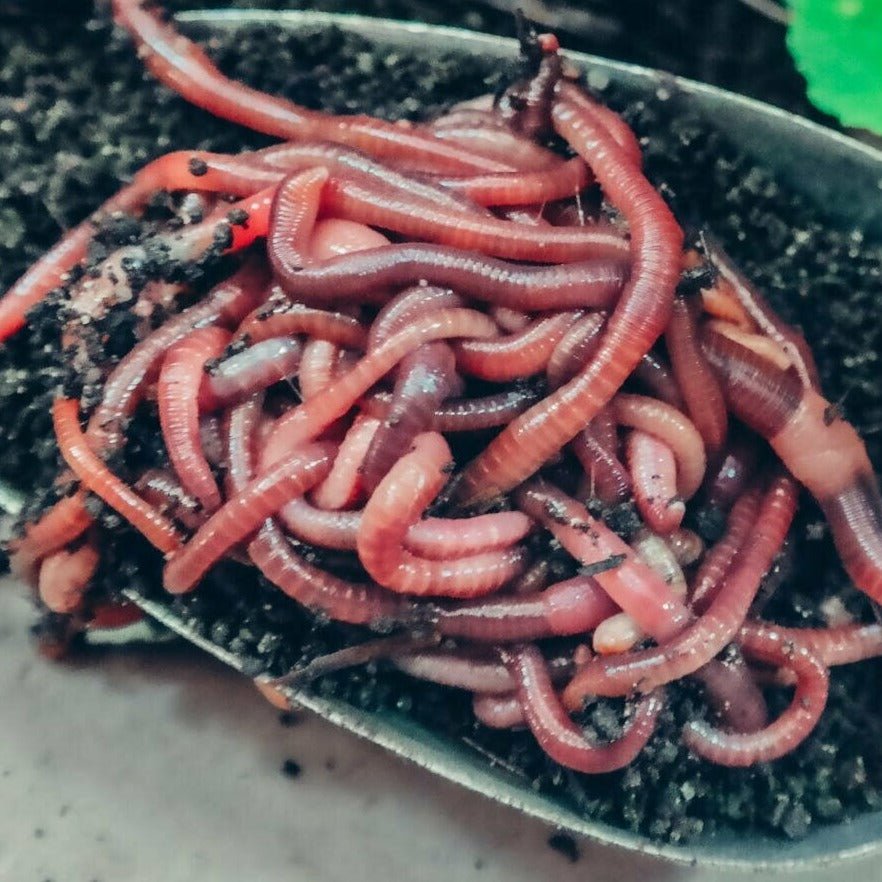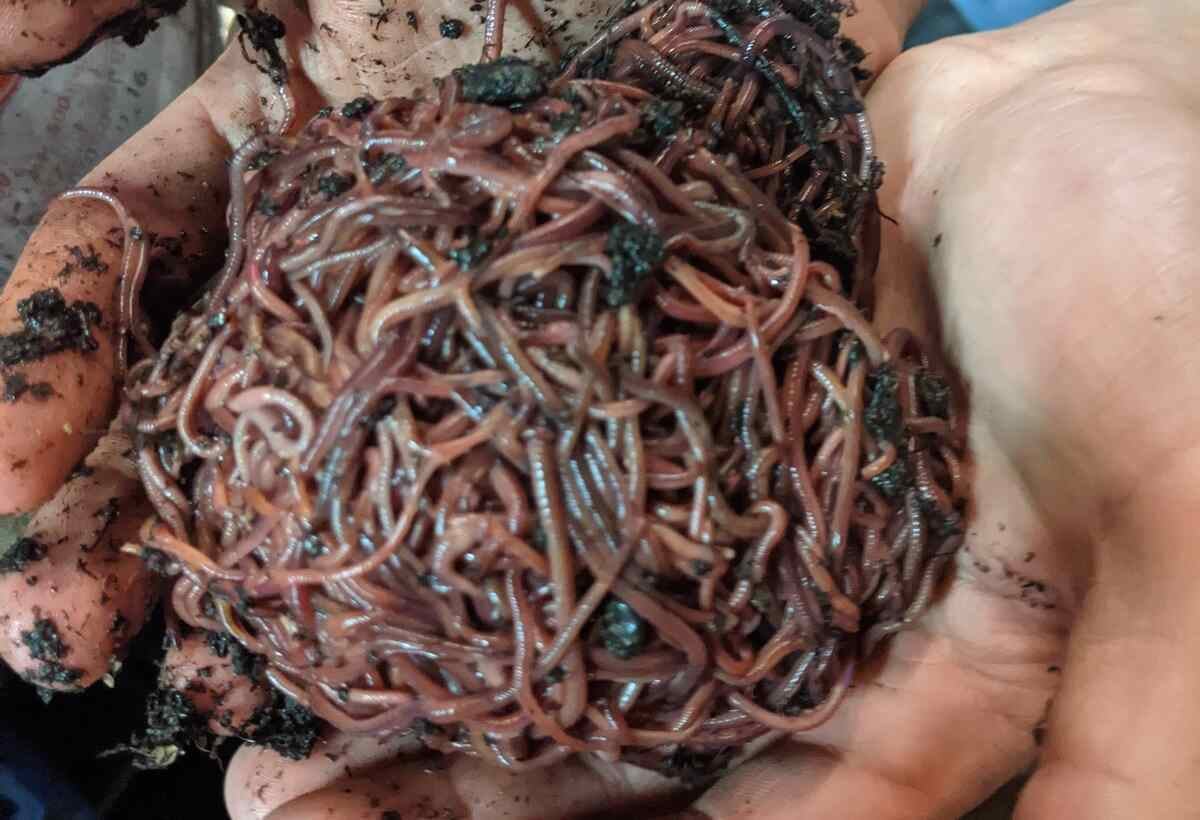Leading Benefits of Utilizing Red Wigglers for Vermiculture
The utilization of red wigglers, or Eisenia fetida, in vermiculture presents a number of engaging advantages that expand beyond simple composting. As we discover these benefits additionally, it becomes obvious that the effects of incorporating red wigglers into agricultural practices are both profound and far-reaching.

Improved Dirt Fertility
Boosted soil fertility is a vital part of lasting farming, and red wigglers play a vital function in this process. As a types of earthworm, red wigglers (Eisenia fetida) are particularly efficient in boosting soil wellness through their all-natural behaviors and biological functions. They consume organic waste, damaging it down right into nutrient-rich spreadings that considerably enhance dirt framework and nutrient accessibility.
The spreadings created by red wigglers are abundant in crucial nutrients, consisting of nitrogen, phosphorus, and potassium. Furthermore, the visibility of red wigglers in the dirt enhances microbial activity, further contributing to nutrition biking and soil aeration.
Incorporating red wigglers into farming techniques not only increases soil fertility yet likewise lowers the requirement for artificial fertilizers, straightening with natural farming principles. Utilizing red wigglers in vermiculture stands for a sustainable technique to dirt management, eventually sustaining the long-term stability of farming systems.
Quick Disintegration Process
The quick decay process assisted in by red wigglers is an exceptional phenomenon that substantially profits both composting and dirt health. These earthworms, understood scientifically as Eisenia fetida, play a critical duty in breaking down raw material successfully. By eating cooking area scraps, plant particles, and other organic waste, red wigglers transform these products into nutrient-rich castings at an accelerated rate.
The process starts as the worms consume natural matter, where it is after that digested in their specialized gizzards - red wigglers. This malfunction not only reduces the quantity of waste however also boosts the accessibility of vital nutrients. As red wigglers excrete spreadings, they launch a byproduct that is bristling with beneficial microorganisms, which further help in decay and improves the compost
Better Soil Framework

Furthermore, the castings produced by red wigglers are rich in helpful microbes and nutrients, which promote a healthy soil community. These castings boost the dirt's dampness retention capability, minimizing the demand for frequent watering. As the organic issue is broken down into better bits, it increases the soil's aggregate stability, preventing erosion and compaction.
The presence of red wigglers likewise promotes a diverse microbial area, which plays a vital duty in nutrition cycling. This diversity even more enhances dirt fertility and strength, permitting it to support a large range of plant.

Decrease of Waste
Vermiculture using red wigglers plays an essential role in the reduction of waste, specifically organic waste that would or else wind up in garbage dumps. The process of vermicomposting efficiently changes various sorts of natural products, such as food scraps, yard waste, and paper products, into nutrient-rich vermicast. This not only draws away waste from garbage dumps however also lessens the environmental impact related to waste decomposition in these sites, which often creates harmful greenhouse gases like methane.
By utilizing red wigglers, individuals and companies can manage their natural waste extra sustainably. These worms have an impressive capability to take in substantial amounts of natural product, converting it into useful garden compost that can be used to enhance dirt. This procedure not only decreases the quantity of waste however also prolongs the life-span of garbage dumps, ultimately adding to squander monitoring solutions.
Additionally, embracing vermiculture methods urges a society of recycling and sustainability. As more people acknowledge the advantages of composting with red wigglers, the cumulative influence on waste reduction comes to be progressively significant. In recap, utilizing red wigglers for vermiculture gives an efficient strategy for minimizing natural waste while boosting ecological stewardship.
Raised Microbial Task
While taking part in vermicomposting, the visibility of red wigglers significantly enhances microbial activity within the composting system. These earthworms develop a conducive environment for useful microorganisms by try these out freshening the garden compost and breaking down natural material. As the worms take in food scraps and various other organic waste, they secrete nutrient-rich spreadings, which serve as an environment and food resource for diverse microbial neighborhoods.
The raised microbial activity promotes the rapid decay of natural issue, leading to extra efficient nutrition biking. This process not only speeds up garden compost maturation but likewise boosts the overall high quality of the end product. Microorganisms, such as bacteria and fungi, prosper in the worm-rich environment, resulting in a greater focus of essential nutrients like nitrogen, phosphorus, and potassium in the compost.
Additionally, the collaborating relationship between red wigglers and microbes adds to virus suppression and enhances dirt health and wellness. By cultivating a durable microbial populace, vermicomposting with red wigglers advertises biodiversity in the garden compost, ultimately causing richer, healthier soil for plant growth. Thus, the role of red wigglers in enhancing microbial activity is crucial for successful and sustainable vermiculture methods.
Final Thought
In recap, the application of red wigglers in vermiculture offers countless advantages, consisting of enhanced dirt fertility, efficient disintegration of raw material, and improved dirt framework. Their special burrowing habits not only advertises far better water retention however likewise aids in the reduction of waste, adding to sustainable waste monitoring practices. Furthermore, the raised microbial activity cultivated by their spreadings supports a thriving ecosystem, inevitably bring about much healthier plants and even more durable farming systems.
Comments on “Red worms: Transform waste”